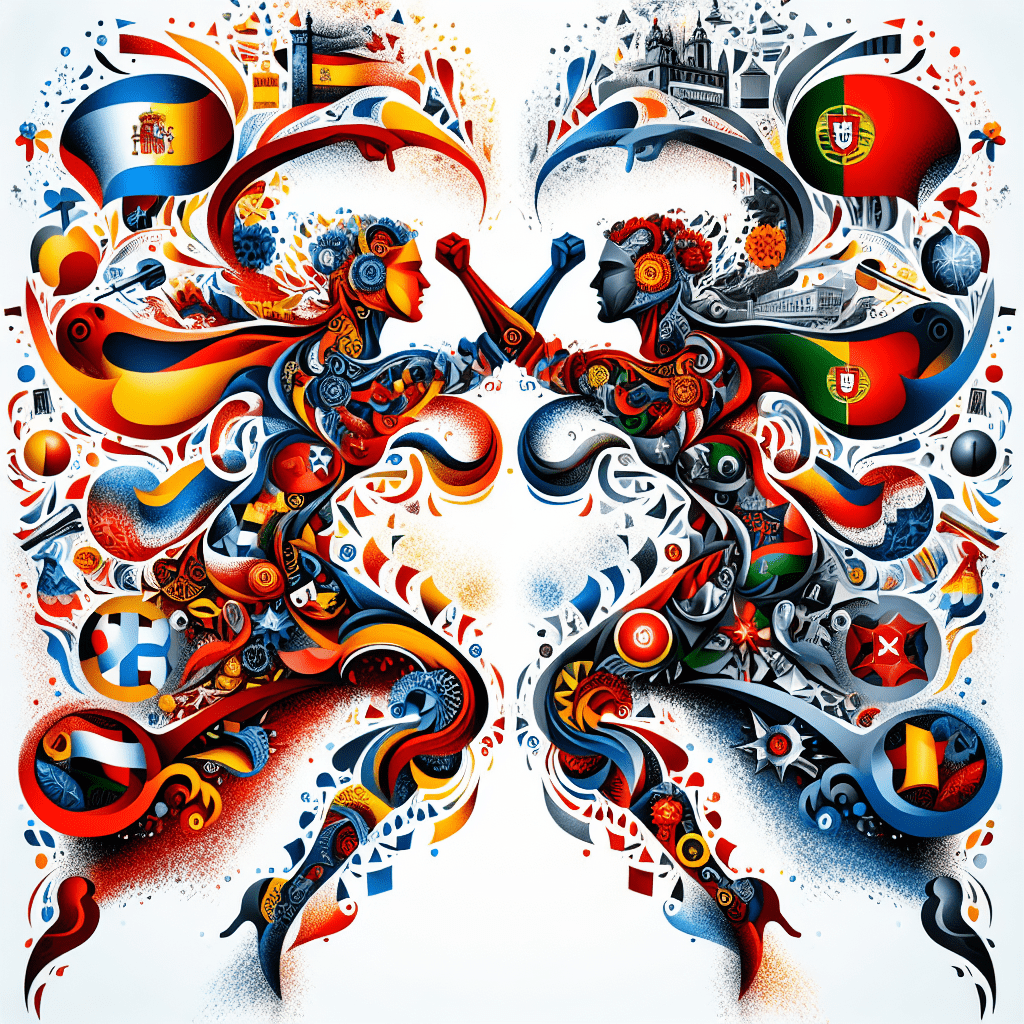[ad_1]
The rivalry between Spain and Portugal extends far beyond the football pitch, encompassing centuries of history, politics, and social issues. This article delves into the multifaceted relationship between these two Iberian nations, shedding light on the underlying factors that fuel their competition and camaraderie alike.
Historical Background
The roots of the Spain-Portugal rivalry can be traced back to the medieval period, when both emerged as distinct kingdoms with conflicting interests. The Treaty of Tordesillas in 1494, which divided the newly discovered lands outside Europe between them, laid the foundation for centuries of competitive exploration and colonization. This agreement, mediated by the Pope, was crucial in shaping the early interactions between Spain and Portugal, setting a precedent for their rivalry.
Political Dimensions
In the realm of politics, Spain and Portugal have navigated a complex relationship characterized by both contention and cooperation. Over the years, territorial disputes and diplomatic tensions have given way to a partnership within the European Union and other international platforms. Today, the two countries work collaboratively on numerous issues, from trade agreements to environmental policies, demonstrating a mature political relationship that has evolved from their historical rivalry.
Social and Cultural Aspects
Socially and culturally, the rivalry manifests in friendly competition, particularly in sports and language. Football matches between Spain and Portugal often see heightened emotions, reflecting a broader sense of national pride and identity. Moreover, despite sharing the Iberian Peninsula and having linguistic similarities, the Portuguese and Spanish languages have developed unique identities, with each nation taking pride in its language and cultural heritage.
The Impact of Colonialism
The colonial histories of Spain and Portugal have also contributed to their rivalry. Both nations built vast empires across the Americas, Africa, and Asia, competing for resources and influence. This shared history of exploration and colonization has left a complex legacy, influencing their economic, political, and social trajectories well into the contemporary period.
Economic Competition and Collaboration
Economically, Spain and Portugal have experienced periods of competition and collaboration. The integration into the European Union has brought them closer, fostering economic cooperation and reducing previous tensions. Today, both nations actively seek to bolster each other’s economic ventures, recognizing the benefits of collaboration in a globalized economy. P>
Modern Diplomatic Relations
In recent years, Spain and Portugal have emphasized their diplomatic ties, focusing on shared interests and challenges. The promotion of Iberian cooperation in sectors such as energy, defense, and technology demonstrates their commitment to a collaborative future. This approach represents a significant shift from past rivalries, highlighting a mutual understanding of the advantages of partnership.
Key Takeaways
- The Spain-Portugal rivalry has deep historical roots, dating back to the medieval period.
- Political and economic dynamics have shifted from competition to collaboration, especially within the context of the European Union.
- Social and cultural factors continue to foster a sense of rivalry but also contribute to the unique identities of each nation.
- The legacy of colonialism remains a complex aspect of the relationship, influencing both countries’ global perspectives.
- Modern diplomatic efforts emphasize cooperation, focusing on shared challenges and opportunities for partnership.
FAQs
- Why did Spain and Portugal experience rivalry?
- The rivalry stemmed from medieval territorial disputes, competition during the Age of Exploration, and differing political and economic interests over the centuries.
- How have Spain and Portugal resolved their historical disputes?
- Do Spain and Portugal still compete today?
- While the rivalry has softened, elements of competition remain, especially in cultural and sports arenas. However, this competition is usually friendly and serves to strengthen their bilateral relations.
- What role does the European Union play in Spain and Portugal’s relationship?
PPC>The EU has been crucial in transitioning their relationship from rivalry to cooperation, providing a framework for economic integration and political dialogue that has benefited both nations.
[ad_2]






